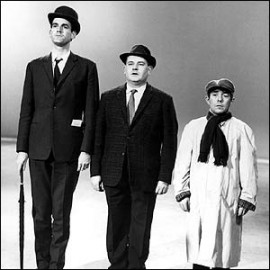
The political news last week was dominated by a row between a leading politician and a national newspaper over whether the politician’s late father had hated Britain. The newspaper said he did, the politician denied it. I have never read anything written by the politician’s late father, so I have no idea what he did or did not think, but the interesting question is not about one man’s views but about hatred: what does it mean to hate a country?
To hate Britain, does it mean to loathe Land’s End, to be repulsed by the river Ribble, to detest the Derbyshire dales? Or is it to dislike the English language, or fish and chips, or the sense of fair play? Or does it really mean an objection to the political institutions that govern British politics, such as parliament, or the monarchy, or even the right to hold and express opinions contrary to those of received wisdom?
What the newspaper cares about are the institutions: a radical political thinker had thought radical political thoughts, and a conservative newspaper takes the gravest offence.
But those of a more thoughtful disposition will understand that there is a distinction to be drawn between a country and its political institutions. Here is Lionel Curtis, in “Economic planning and international order” (1937):
“But it may still be questioned whether, at the present stage of history, devotion to the nation, as such, is a very fruitful form of emotion. The feelings associated with patriotism which we regard as good in themselves are not inseparable from particular forms of political organisation. To love the landscape of the Oxford meadows or the fine flexibility of the English tongue, it is not necessary to love the Oxfordshire County Council or the English Board of Education. The sentiment of public service may be best evoked by institutions which are most conducive to human good. To find the ultimate goods of life in particular forms of political machinery, regardless of the suitability of that machinery to promote human happiness, is surely a delusion – a confusion of ends and means, of mechanism and purpose.”
Disliking the way a country is governed – as this website does, in some ways – does not mean hating it: a radical might argue that it is precisely because he loves his country so much that he cares how it is governed.
